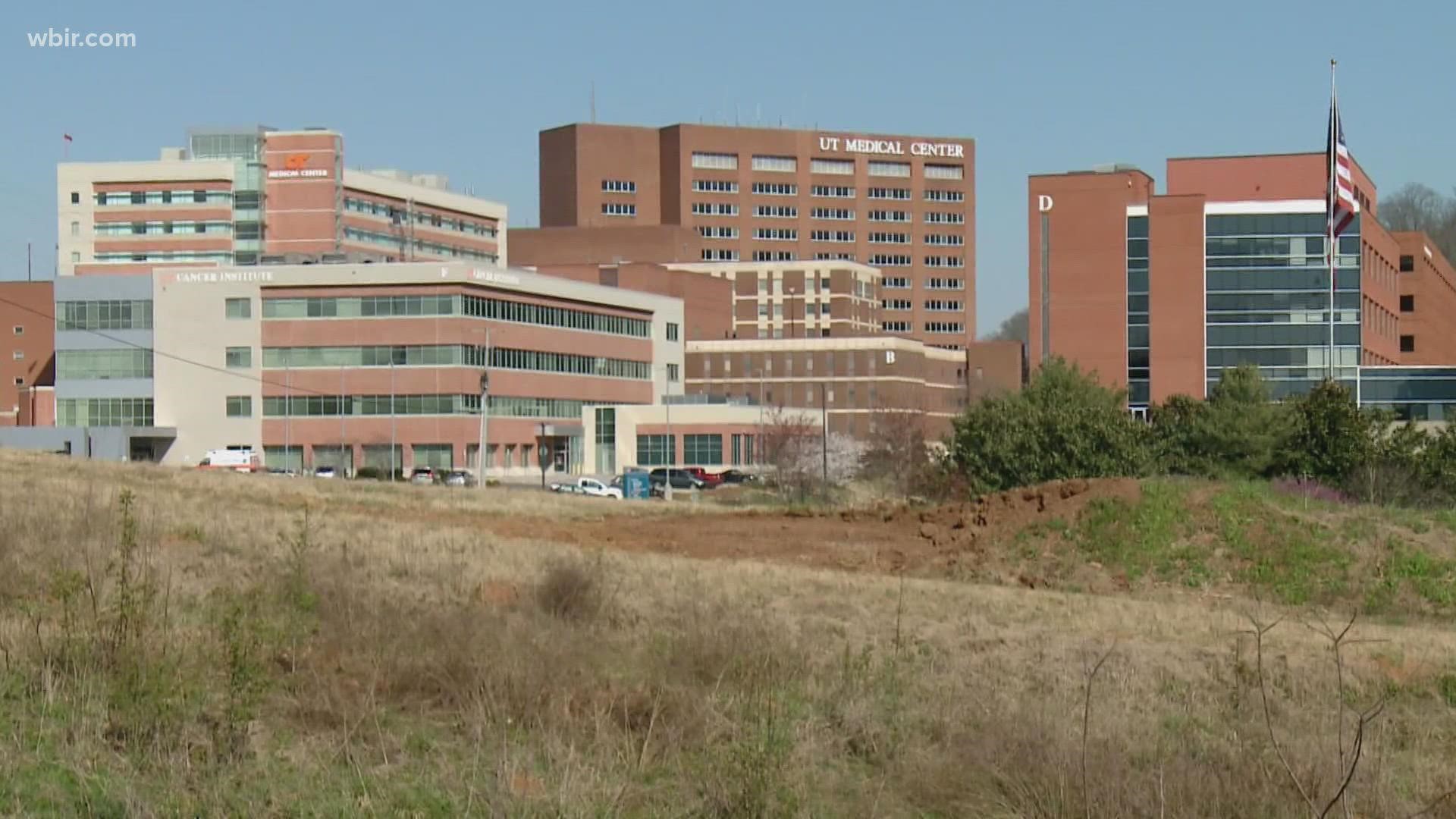KNOXVILLE, Tenn. — The University of Tennessee Medical Center announced Thursday it will be pausing some non-essential surgeries on a case-by-case basis again.
This comes as COVID-19 hospitalizations continue to grow rapidly to the point East Tennessee regional hospitals reported they running low on ICU bed space.
UTMC said this pause is not a blanket stop on any procedure, but non-essential procedures are being delayed on a case-by-case basis. UTMC said it will continually evaluate the situation every two weeks and contact patients directly if it needs to push back a procedure starting Monday, August 16.
On Wednesday, the Knox County Health Department said there were only five ICU beds available in all of East Tennessee's 19 regional hospitals. While ICUs typically stay busy during the summer months, the rapid growth in COVID-19 cases has led to a rapid rise in new hospitalizations -- almost entirely in unvaccinated people according to local and state health officials.
At UT Medical Center, 92% of COVID-19 patients currently hospitalized as of Thursday were not fully vaccinated, according to Dr. James Shamiyeh, UTMC's senior vice president and chief quality officer. The average age of patients in the hospital they've seen for COVID-19 is also lower than it was prior to the vaccine rollout -- averaging in the 50s now. Doctors attribute that to the significantly higher rate of vaccination among people 60 and older.
This wave of hospitalizations shows no sign of slowing down yet as the number of people concurrently hospitalized grew from 230 last week to 333 on August 11. Shamiyeh said the most effective method at preventing COVID-19 hospitalization is being fully vaccinated against the virus, saying they are seeing similar increases across the region.
For people who are hesitant to get the COVID-19 vaccine, Shamiyeh urged them to take any precautions they feel comfortable with, such as wearing a mask in public spaces, not gathering in large groups or close to strangers, and washing their hands frequently to reduce the chance of getting infected.
"Health care in general is interested in the safety and wellbeing of the population. And as much as we absolutely support vaccination, and we do, and I think the data I showed related to hospitalizations really drives that home that vaccination is highly effective at preventing people ending up requiring hospitalization, I think what sometimes gets lost in that message is that we just want people to be careful. We want to avoid as many people to avoid being in the hospital as possible," he said. "Anything you can do to minimize your risk to COVID-19, whatever that means for you, is something we really think people should try to do right now. This is very real, we're seeing real stories of patients having difficulty, and we want to minimize that as much as possible."
UTMC said even though emergency units across the area are going to remain busy for several weeks at least, people should still always seek emergency care when they need it.
Tennessee Department of Health Commissioner Dr. Lisa Piercey said the current wave of COVID-19 hospitalizations in Tennessee is in line with what the Centers for Disease Control and Prevention has called a "pandemic of the unvaccinated."
"About 97 percent of all our hospitalizations and 98 plus percent of our deaths are amongst the unvaccinated," Piercey said.
While breakthrough cases of COVID-19 are also happening currently with people who've been fully vaccinated, doctors said these are expected -- and very few of those infections (less than 1%) have led to serious illness or death.
The CDC reports the doubly contagious Delta variant has become the predominant strain in the U.S., leading to a larger number of mild and asymptomatic breakthrough cases. The CDC said symptomatic carriers regardless of vaccination status are able to spread the virus, but it does not know conclusively whether fully vaccinated people who get infected but don't show any symptoms are able to transmit the virus to others.
On Thursday, the White House's chief medical adviser Dr. Anthony Fauci said booster shots will be needed for the roughly 3% of people in the U.S. with compromised immune systems to help them continue to fight off serious infections, but otherwise boosters are currently not recommended for the general public. The FDA would need to authorize booster shots before people could receive them.
Fauci said “inevitably there will be a time when we’ll have to get boosts” because ”no vaccine, at least not within this category, is going to have an indefinite amount of protection.”
In December 2020, health leaders sounded the alarm at 433 concurrent hospitalizations when there were 8 remaining ICU beds. Hospitals scaled back on non-emergent procedures and flipped the final benchmark red.
As of Wednesday, there were 1,819 active cases of COVID-19 in Knox County -- levels not seen since the winter surge.
There has been a total of 664 deaths related to COVID-19, six of which occurred in the past week.

